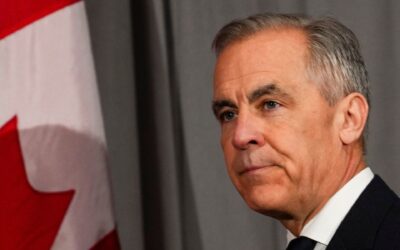A major industry coalition at the forefront of climate finance is fracturing. The largest asset manager in the world, BlackRock, pulled out of the Net Zero Asset Managers alliance last week. Four Canadian financial institutions then quit a similar climate coalition for banks. Both organizations are housed under the Glasgow Financial Alliance for Net Zero, tasked with leveling up climate ambition and building greater accountability on the path to net zero emissions.
The departure of BlackRock and other financial institutions is a major reversal and could slow new investment in climate solutions. It also reflects the growing wave of anti-climate sentiment in North America and the anticipated rollback of climate policy under the Trump presidency.
Yet, at the same time, it doesn’t change the fundamentals of climate finance. How can both of these things be true at the same time?
Let’s start with why the fundamentals remain largely unchanged.
The costs of climate change are becoming increasingly material for the bottom line of businesses around the globe. It’s the reason institutions like BlackRock joined the global alliance in the first place and these factors are even more significant than they were a few years ago when the firm decided to participate. Events like the catastrophic wildfires in California—already projected to be among the costliest disasters of its kind in U.S. history—will become more frequent and inflict higher costs on people, property, and infrastructure. The result of these escalating catastrophic losses will profoundly affect financial returns across the sector.
At the same time, the global energy transition is now all but inevitable—it’s now a question of how fast and how smoothly it will move ahead. To give one example: electric vehicles and hybrids nearly outsold their gas counterparts in China in 2024 and will likely overtake them this year. As the world’s largest auto-market, the accelerating trends in China have major implications for future oil demand and auto manufacturers in North America and Europe. The world now has many of the technologies required to significantly cut emissions, and these same technologies are often cheaper and better than their dirtier alternatives.
The financial sector firmly understands this new reality. Financial institutions have built up internal expertise and entire teams devoted to understanding the material risks that climate poses to their shareholders and clients—and the enormous opportunities on the table. Whether it’s called ESG, climate finance, or “woke capitalism,” financial institutions have a fiduciary duty to consider how the risks and opportunities from climate change—like any other major risk—affect their shareholders and clients. Quite simply, maximizing returns for investors means that financial institutions cannot go backwards.
While the foundations of managing climate risk remain strong, BlackRock’s exit from the global coalition could slow the pace and scale of new climate investment. The world needs to invest trillions of dollars to meet its climate goals, most of which will need to come from the private sector.
Global leadership from financial institutions like BlackRock is important in closing this gap, which is why their retreat from the global climate coalition is noteworthy. In 2020, the company’s CEO, Larry Fink, turned heads in the global financial community when he wrote that the risks of climate change were “compelling investors to reassess core assumptions about modern finance” and had become a “defining factor in companies’ long-term prospects”. The recent reversal weakens the signal for BlackRock’s clients, shareholders, and other financial institutions that watch the asset manager closely.
The most concerning part of the fracturing coalition, however, is its impact on influencing government policy.
Policies like carbon pricing, tax credits, climate investment taxonomies, and disclosure will determine whether financial institutions can achieve their climate targets. No longer having the world’s largest asset manager at the table may lessen the coalition’s impact and therefore slow the scale and speed of the transition, particularly if populist backlash against climate policy grows in North America.
To modify Larry Fink’s original 2020 clarion call, climate risk is still investment risk no matter what it’s called or who’s working to address it. But BlackRock’s departure sends an unfortunate signal at a critical time. This is something that could affect the long-term returns for all investors.








